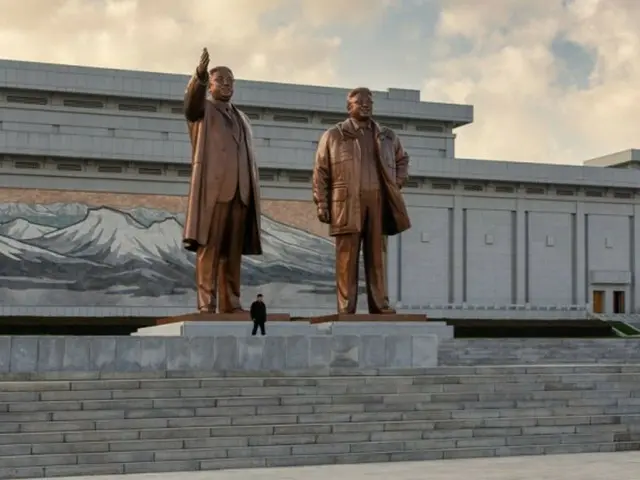confirmed. What's behind it? According to North Korea's Korean Central News Agency, the ambassador to Uganda left his post on the 23rd of last month, and the ambassador to Angola left his post on the 27th, respectively, to the president of the host country.
I told him that I had given him a greeting. The Chinese Ministry of Foreign Affairs also confirmed on the 1st of this month that the Hong Kong Consulate General had been closed. At a press conference on the same day, the Ministry's Deputy Press Director said, ``North Korea has closed its Hong Kong consulate.''
I respect the decision." According to South Korea's Ministry of Unification, North Korea has formal diplomatic relations with 159 countries, and as of last month, North Korea has established official diplomatic relations with 159 countries.
There were 53 locations in the country. According to South Korean media, North Korea's Ministry of Foreign Affairs confirmed on the 3rd of this month that it was closing its diplomatic missions overseas one after another. According to Yonhap News, a spokesperson for North Korea's Ministry of Foreign Affairs said that
He explained the closure in response to a question from a reporter from the Korean Central News Agency. "It is part of our normal business to advance our national interests," he said, adding, "Based on the changing international environment and national foreign policy, we will
"We are proceeding with a project to remove and establish new diplomatic missions, etc." ``The necessary diplomatic measures will continue to be taken from the perspective of the prospective development of our country's foreign relations.''
” he also said. However, the specific countries and details of the reorganization were not disclosed. On the other hand, officials from South Korea's Ministry of Unification said that this move was due to the impact of economic sanctions against North Korea by the international community.
The reason for this is that it has become difficult to secure operating funds. The Yomiuri Shimbun said, ``North Korea's overseas diplomatic missions have reported that their diplomats are using diplomatic immunity to engage in smuggling and support arms exports.''
It has become a base for earning foreign currency by doing things like doing things like ``It is said that (North Korea's overseas diplomatic missions) have also played the role of a contact point for dispatching workers to make bronze statues in Africa, but they are not responsible for nuclear tests and ballistic missiles.
The United Nations Security Council has tightened sanctions in response to the missile launch, making it difficult for even African countries that have historically had friendly relations to carry out their activities. Also, according to Reuters
Chad O'Carroll, founder of North Korea information site NK Pro, wrote in a report on the 1st that the successive closures could represent one of the biggest foreign policy reforms for North Korea in decades.
"This could affect North Korea's diplomatic operations, humanitarian activities, and means of obtaining foreign currency." Also, former North Korean diplomat and South Korean National Assembly member Tae Yong-ho (Tae Yong-ho)
Yong-ho pointed out that for North Korea, ``this shows that the strategic position of Asia and Africa has declined, and the position of China and Russia has grown.'' Recently, North Korea has been collaborating with China and Russia.
In July of this year, North Korea invited delegations from China and Russia to an event commemorating the 70th anniversary of the armistice of the Korean War. North Korean General Secretary Kim Jung Eun visited North Korea
He met with Hong Zhong, a member of the Chinese Communist Party's Politburo, and others, and announced his policy to develop China-North Korea relations to "new heights." Furthermore, in September of this year, Kim Jong Il made an official visit to Russia and held a summit meeting with President Putin.
Ta. It was the first time in about four and a half years since April 2019 that the two leaders met. At the meeting, Kim Jong Il said of his relationship with Russia, ``I am confident that we can maintain unity in the fight against imperialism.''
ing. "We will place the highest priority on the relationship between the two countries and develop it," he said. Last month, he met with Russian Foreign Minister Sergei Lavrov. Referring to the North Korea-Russia summit meeting in September, he said, ``We will faithfully realize the agreement,
"We will build a 100-year grand plan for North Korea-Russia relations in a new era." North Korea's Ministry of Foreign Affairs has indicated that it may close further overseas diplomatic missions in the future. The Tokyo Shimbun said, ``Russia is working hard to strengthen cooperation.
There is a possibility that dependence on people will increase."
2023/11/07 10:44 KST
Copyrights(C)wowkorea.jp 5

